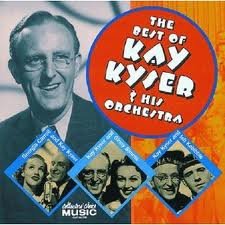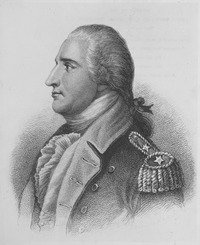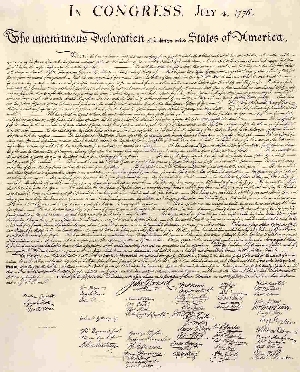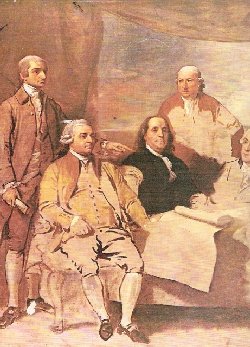BRYCE ON MUSIC
- It is interesting what we remember.
(Click for
AUDIO VERSION)
To use this segment in a Radio broadcast or Podcast, send TIM a request.

Ever drive along in a car and suddenly an old tune comes to your lips, perhaps something from your childhood? Recently, I found myself blurting out,
"Boop boop dit-tem dat-tem what-tem Chu!" Frankly, I couldn't remember the name of the song, which I found rather irritating. This caused me to look it up through an Internet search engine. Remarkably, it was:
"Three Little Fishes" (click for
Lyrics)
This was introduced by Kay Kysor and featured Ish Kabibble. The words and music were by Saxie Dowell and the song was a US No. 1 hit in 1939. Here's a sample of the lyrics:
Down in the meadow in a little bitty pool
Swam three little fishies and a mama fishie too
"Swim" said the mama fishie, "Swim if you can"
And they swam and they swam all over the dam
Boop boop dit-tem dat-tem what-tem Chu!
Boop boop dit-tem dat-tem what-tem Chu!
Boop boop dit-tem dat-tem what-tem Chu!
And they swam and they swam all over the dam
I cannot explain why I recollect this song as it certainly wasn't from my generation. Perhaps I remember it as a song from childhood. Whatever the reason, I found it remarkable I could recall it. Actually, there are a lot of old-time songs cluttering our minds. They're not particularly complicated, in fact they are rather simple with a catchy tune. We may not remember all of the words for these nonsense songs, as I call them, but we readily recognize the chorus. Let me give you a couple of other examples.
Oh, I went down South
For to see my Sal
Sing Polly wolly doodle all the day
My Sal, she is
A spunky gal
Sing Polly wolly doodle all the day
Fare thee well,
Fare thee well,
Fare thee well my fairy fay
For I'm going to Lou'siana
For to see my Susy-anna
Singing Polly wolly doodle all the day
(Copyright
http://elyrics.net; click for Lyrics)
The song was first published in a Harvard student songbook in 1880. It was used in several movies, including Shirley Temple's "The Littlest Rebel," as well as "Butch Cassidy and the Sundance Kid." This was another song I remember from childhood.
I've been working on the railroad
All the live-long day.
I've been working on the railroad
Just to pass the time away.
Can't you hear the whistle blowing,
Rise up so early in the morn;
Can't you hear the captain shouting,
"Dinah, blow your horn!"
Dinah, won't you blow,
Dinah, won't you blow,
Dinah, won't you blow your horn?
Dinah, won't you blow,
Dinah, won't you blow,
Dinah, won't you blow your horn?
I don't know how I came to learn the lyrics for the song, but I did. Maybe it was in kindergarten or on a children's television show.
"Ta-ra-ra Boom-de-ay" (click for
Lyrics)
The song originated in the 1880's. Although everyone knows the chorus,
"Ta-ra-ra Boom-de-ay," I do not know a soul who knows the rest. Even the chorus was bastardized to make a childish joke.
"Buffalo Gals" (click for
Lyrics)
This was published back in 1844 by a gentleman named John Hodges. The song was a favorite in western movies, particularly on pianos in saloons. It was also used in Frank Kapra's iconic movie,
"It's a Wonderful Life," where George (Jimmy Stewart) and Mary (Donna Reed) sing it as a duet. It was also used as the theme song for the movie. The chorus should be familiar to a lot of people:
Buffalo gals, won't you come out tonight?
Come out tonight, Come out tonight?
Buffalo gals, won't you come out tonight,
And dance by the light of the moon.
"Skip to my Lou" (click for
Lyrics)
This song dates back at least to the early 19th century, maybe earlier. The song was used in early square dancing and may have originated in Scotland (
"Lou" is Scottish for
"Love").
"Skip" meant trade partners on the dance floor. The chorus was quite simple:
Skip, skip, skip to my Lou, (3x)
Skip to my Lou, my darlin'.
"Jimmy Crack Corn"
Originated in the 1840's, probably in the South. Like the rest of the songs herein, we knew the chorus well, but not the rest of the piece.
Jim crack corn I don't care,
Jim crack corn I don't care,
Jim crack corn I don't care,
When I looked this one up, I was surprised to see it was quite racist by today's standards. So much so, I hesitate to include them herein (you can look it up yourself).
I find the durability of these songs interesting, even though we know them primarily by their chorus lines.
"Daisy Bell" (click for
Lyrics)
A classic from the "Gay 90's" was "Daisy Bell" as composed in 1892 by Harry Dacre. It was made particularly popular in the modern era movie,
"2001: A Space Odyssey," whereby the spaceship's computer, the HAL 9000, attempts a mutiny and must be shutdown. As it fails, it reverts back to an old song it was taught by its instructor,
"Daisy Bell." The chorus is still familiar to a lot of people:
Daisy, Daisy,
Give me your answer do!
I'm half crazy,
All for the love of you!
It won't be a stylish marriage,
I can't afford a carriage
But you'll look sweet upon the seat
Of a bicycle made for two.
"Witch Doctor" (click for
Lyrics)
Produced by David Seville and the Chipmunks in 1958, it became a kid classic over night, primarily due to its chorus of,
"Oo ee oo ah ah ting tang walla walla bing bang." The song did so well, it went on to become number one on the Billboard Hot 100.
"High Hopes" (click for
Lyrics)
This became a popular Frank Sinatra song written by Jimmy Van Heusen and lyrics by Sammy Cahn in 1959 for the film,
"A Hole in the Head."
Next time your found, with your chin on the ground
There a lot to be learned, so look around
Just what makes that little old ant
Think he'll move that rubber tree plant
Anyone knows an ant, can't
Move a rubber tree plant
But he's got high hopes, he's got high hopes
He's got high apple pie, in the sky hopes
So any time your gettin' low
'Stead of lettin' go
Just remember that ant
Oops there goes another rubber tree plant
The song became incredibly popular not just with grownups, but with children as well.
None of these tunes were particularly complicated, just simple songs to brighten our day. These were not children's rhymes but legitimate adult songs that were playful in nature. Their strength was in their catchy wordplay. More than anything, they were designed for simple fun, and not to make a statement of any kind. As such, they tend to stay with you longer than you think. The fact I was humming, "Boop boop dit-tem dat-tem what-tem Chu!" over fifty years after I learned it should denote its durability.
It's interesting how we clutter our minds. Besides, they were all the "Bee's Knees!"
Keep the Faith!
Note: All trademarks both marked and unmarked belong to their respective companies.
Copyright © 2014 by Tim Bryce. All rights reserved.
NEXT UP: WHO HAS GOT YOUR BACK? - A lesson of loyalty in the workplace, and in life.
- Another history lesson for our youth; Benedict Arnold and today's terrorists.
Listen to Tim on WJTN-AM (News Talk 1240)
"The Town Square" with host John Siggins (Mon, Wed, Fri, 12:30-3:00pm Eastern), and KIT-AM 1280 in Yakima, Washington
with hosts Dave Ettl & Lance Tormey (weekdays. 6:00-9:00am Pacific). Or tune-in to Tim's channel on
YouTube.
 In the office, we like to believe our fellow co-workers will back us up when push comes to shove. Actually, we're being quite naive when this occurs. To illustrate, there was a systems manager in Chicago who had grown weary of the petty politics practiced by his boss, the I.T. Director. Projects were late, none of the systems were integrated, end-users were unhappy, and they found themselves in a constant fire-fighting mode (maintenance) as opposed to conquering new challenges. Instead of implementing discipline and organization, the Director played political games pitting his workers against each other, and morale deteriorated. The systems manager's staff was unhappy and frequently vented their frustrations to him. Conditions got so bad, the manager told his staff he was going to march into the Director's office, register a formal complaint and threaten that he and his department were prepared to resign. Everyone thought this was a bold and imaginative move which they endorsed.
In the office, we like to believe our fellow co-workers will back us up when push comes to shove. Actually, we're being quite naive when this occurs. To illustrate, there was a systems manager in Chicago who had grown weary of the petty politics practiced by his boss, the I.T. Director. Projects were late, none of the systems were integrated, end-users were unhappy, and they found themselves in a constant fire-fighting mode (maintenance) as opposed to conquering new challenges. Instead of implementing discipline and organization, the Director played political games pitting his workers against each other, and morale deteriorated. The systems manager's staff was unhappy and frequently vented their frustrations to him. Conditions got so bad, the manager told his staff he was going to march into the Director's office, register a formal complaint and threaten that he and his department were prepared to resign. Everyone thought this was a bold and imaginative move which they endorsed.
 Tim Bryce is a writer and the Managing Director of M&JB Investment Company (M&JB) of Palm Harbor, Florida and has over 30 years of experience in the management consulting field. He can be reached at timb001@phmainstreet.com
Tim Bryce is a writer and the Managing Director of M&JB Investment Company (M&JB) of Palm Harbor, Florida and has over 30 years of experience in the management consulting field. He can be reached at timb001@phmainstreet.com Ever drive along in a car and suddenly an old tune comes to your lips, perhaps something from your childhood? Recently, I found myself blurting out, "Boop boop dit-tem dat-tem what-tem Chu!" Frankly, I couldn't remember the name of the song, which I found rather irritating. This caused me to look it up through an Internet search engine. Remarkably, it was:
Ever drive along in a car and suddenly an old tune comes to your lips, perhaps something from your childhood? Recently, I found myself blurting out, "Boop boop dit-tem dat-tem what-tem Chu!" Frankly, I couldn't remember the name of the song, which I found rather irritating. This caused me to look it up through an Internet search engine. Remarkably, it was:
 234 years ago today (Sep 24th),
234 years ago today (Sep 24th),  If you haven't noticed, the handshake has been slowly going the way of the Dodo bird. If you watch sporting events, particularly at the youth level, you are more likely to see fist "bumps" or the slapping of hands as opposed to a genuine handshake. These variations of the handshake likely came from pop culture.
If you haven't noticed, the handshake has been slowly going the way of the Dodo bird. If you watch sporting events, particularly at the youth level, you are more likely to see fist "bumps" or the slapping of hands as opposed to a genuine handshake. These variations of the handshake likely came from pop culture.
 I was having a cigar with a good friend recently where we were lamenting about the state of affairs in our government, business, and the country in general. It's easy to be negative when events do not turn out as you expect them. However, I made the observation people tend to overlook the blessings in their lives, those events, however large or trifle, somehow had a profound effect on our lives. I then started to enumerate mine:
I was having a cigar with a good friend recently where we were lamenting about the state of affairs in our government, business, and the country in general. It's easy to be negative when events do not turn out as you expect them. However, I made the observation people tend to overlook the blessings in their lives, those events, however large or trifle, somehow had a profound effect on our lives. I then started to enumerate mine:

 As we get closer to election day in November, political street signs are popping up everywhere. The signs began to appear early in the summer as a prelude to primary season. Now there is a morass of signs extending from one end of the county to the other. Although there are congressional races in the offing, most signs are related to municipal and county races, such as county commissioners, school boards, mayoral, and judges.
As we get closer to election day in November, political street signs are popping up everywhere. The signs began to appear early in the summer as a prelude to primary season. Now there is a morass of signs extending from one end of the county to the other. Although there are congressional races in the offing, most signs are related to municipal and county races, such as county commissioners, school boards, mayoral, and judges.
 For some reason, Americans believe there is a legal requirement to separate church and state in the US Constitution. It is now commonly believed organized religion has no business in the workings of the state. The reality is, there is no such stipulation whatsoever in the Constitution. There is only a couple of references to religion in our governing documents. The first is in Article 6 of the Constitution whereby "...no religious Test shall ever be required as a Qualification to any Office or public Trust under the United States." The second reference is in Amendment One of the Bill of Rights whereby, "Congress shall make no law respecting an establishment of religion, or prohibiting the free exercise thereof;..." I cannot speak for the governing documents of the various states and territories, but as far as the Constitution is concerned, that is all there is pertaining to religion.
For some reason, Americans believe there is a legal requirement to separate church and state in the US Constitution. It is now commonly believed organized religion has no business in the workings of the state. The reality is, there is no such stipulation whatsoever in the Constitution. There is only a couple of references to religion in our governing documents. The first is in Article 6 of the Constitution whereby "...no religious Test shall ever be required as a Qualification to any Office or public Trust under the United States." The second reference is in Amendment One of the Bill of Rights whereby, "Congress shall make no law respecting an establishment of religion, or prohibiting the free exercise thereof;..." I cannot speak for the governing documents of the various states and territories, but as far as the Constitution is concerned, that is all there is pertaining to religion. President Obama would have us believe the
President Obama would have us believe the  I recently read a couple of articles regarding the shrinking American middle class. It seems the rich get richer and the poor are doing much better thanks to escalated welfare spending, but the middle class is struggling.
I recently read a couple of articles regarding the shrinking American middle class. It seems the rich get richer and the poor are doing much better thanks to escalated welfare spending, but the middle class is struggling.
 I have written about retirement in the past and I still regard it as a mystery. I have had more friends "check out" recently for a variety of reasons. They all claim to be happy to be retired, that they have been planning it for years, and that I am a chump to keep working. I consider this all a bald-faced lie. I've seen some become musicians, where they play pickup gigs. I've seen others become golfers, playing the same course over and over again like a gerbil on a treadmill. And they all seem to be obsessed with Viagra or Cialis for some reason.
I have written about retirement in the past and I still regard it as a mystery. I have had more friends "check out" recently for a variety of reasons. They all claim to be happy to be retired, that they have been planning it for years, and that I am a chump to keep working. I consider this all a bald-faced lie. I've seen some become musicians, where they play pickup gigs. I've seen others become golfers, playing the same course over and over again like a gerbil on a treadmill. And they all seem to be obsessed with Viagra or Cialis for some reason.
 Today, we celebrate the signing of the Treaty of Paris. "The Treaty of Paris?" you ask, "What in the world is that? Does it have something to do with ending the Vietnam War?" Not quite.
Today, we celebrate the signing of the Treaty of Paris. "The Treaty of Paris?" you ask, "What in the world is that? Does it have something to do with ending the Vietnam War?" Not quite.